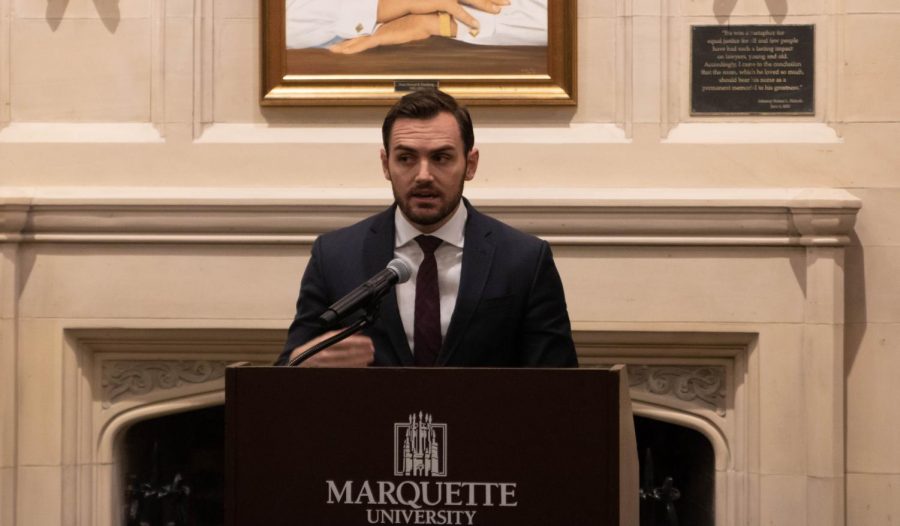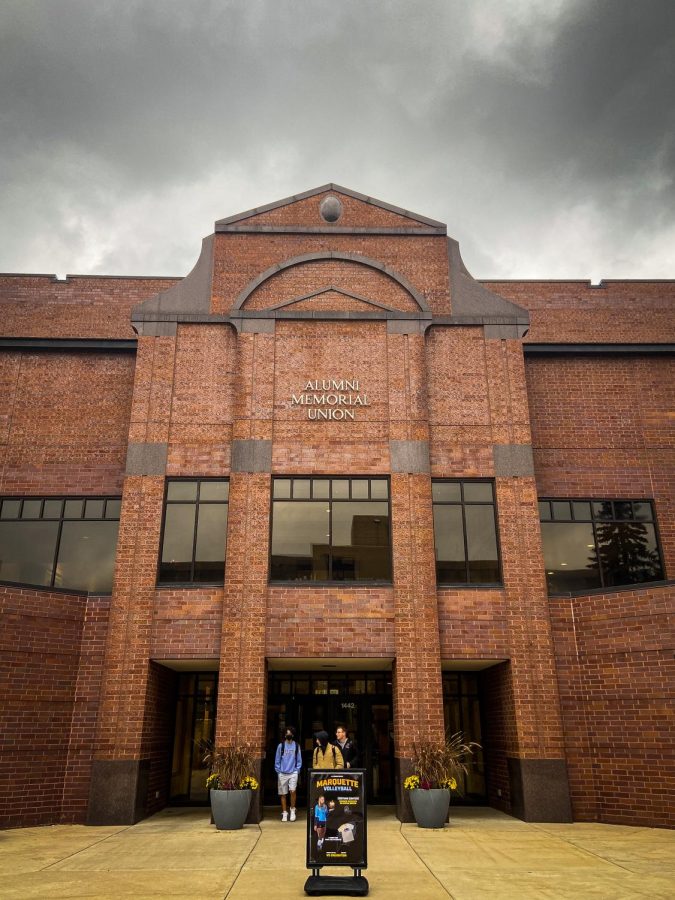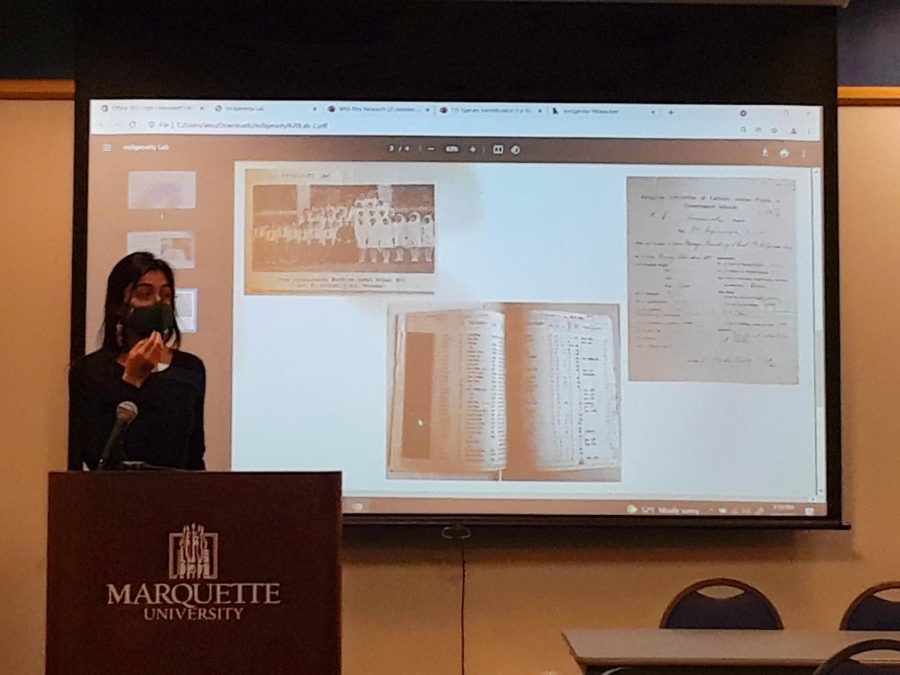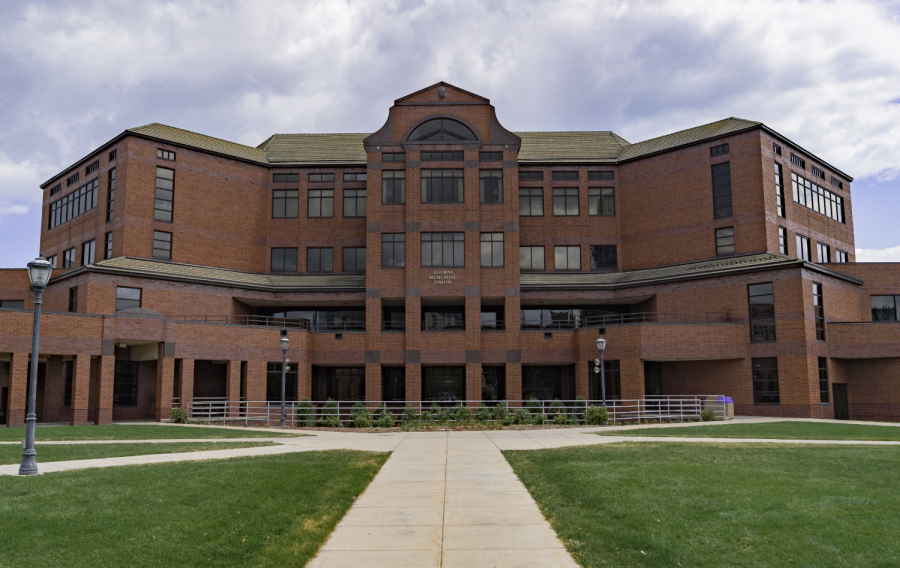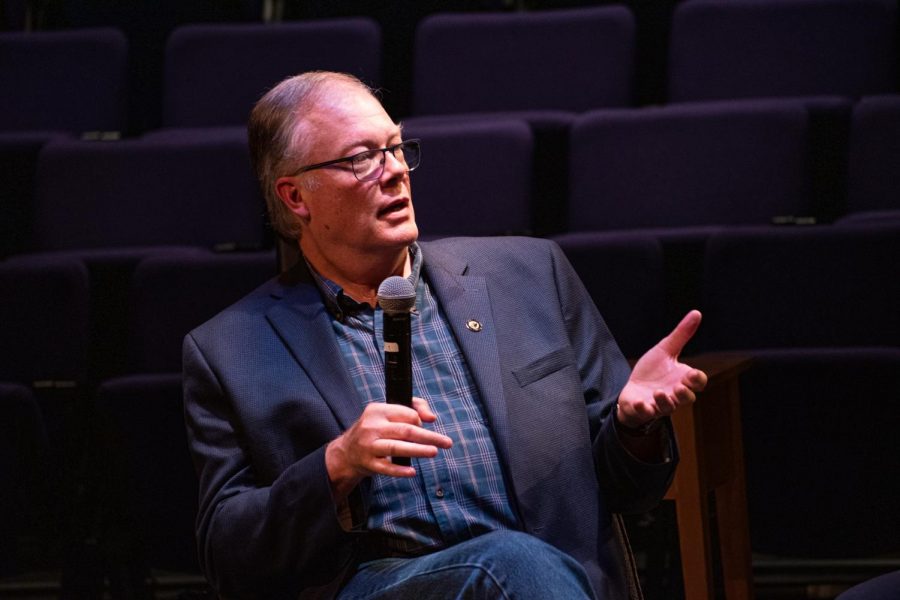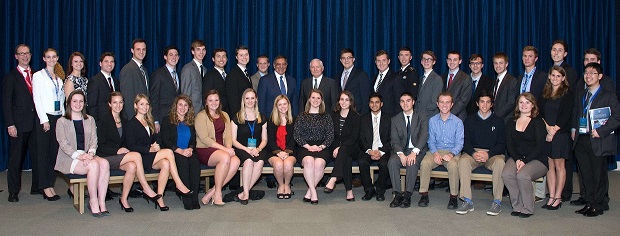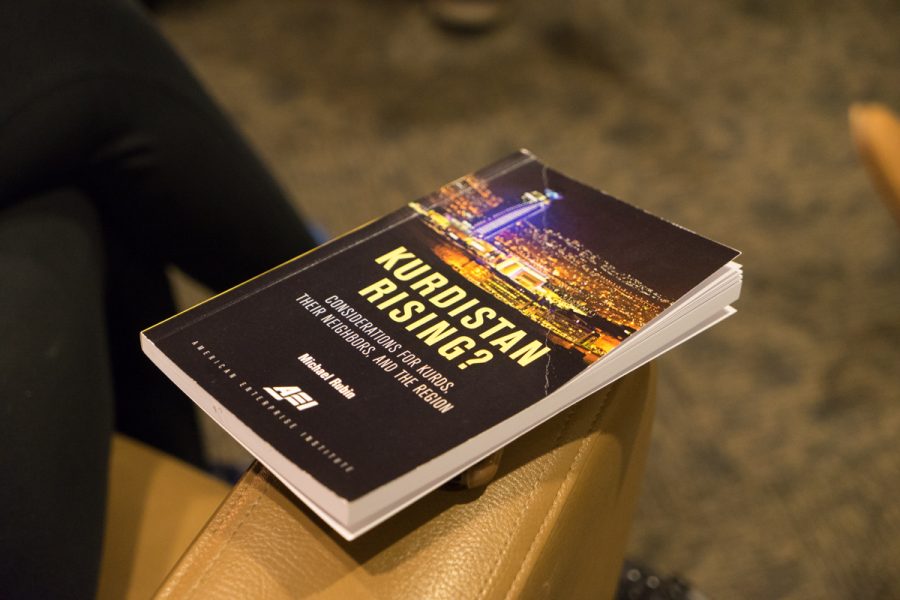Republican U.S. Rep. Mike Gallagher from the 8th District of Wisconsin visited Marquette University Monday evening to lead a discussion at Sensenbrenner Hall titled “Wisconsin and American Foreign Policy.”
Gallagher was recently re-elected for a second Congressional term with 62.7 percent of votes over his Democratic opponent Tom Nelson.
Gallagher began the discussion by highlighting key historical moments when representatives from Wisconsin influenced foreign policy.
“Wisconsin, and the values of Wisconsin, have much to contribute to foreign policy,” Gallagher said. “And that makes it difficult to understand because we can seem removed from the great problems of international politics, but I would argue that America’s dairyland has a distinctly American foreign policy legacy that directly connects with our founding principles.”
Gallagher illustrated Wisconsin’s influence on foreign policy with three stories.
He first talked about Wisconsin Sen. Robert M. La Fallette’s commitment to a policy of strict neutrality during World War I. He then discussed American diplomat from Wisconsin George F. Kennan’s warning of Soviet power during World War II and how he combated international competition. Gallagher’s final lesson was inspired by Les Aspin.
“If you truly want peace, then you must prepare for war,” Aspin said. He said although Aspin wanted to end the Cold War between the U.S. and Soviet Union, Aspin knew that he must keep a strong national defense.
Modeling after past foreign policy influencers, Gallagher is using his background in foreign policy in an attempt to shape foreign politics.
“Rep. Gallagher has had several years now of foreign policy experience,” Paul Nolette, assistant political science professor, said. “That includes his military background and his work as a key staffer with Sen. (Bob) Corker on the Foreign Relations Committee.”
Nolette said he thinks Gallagher’s experience and skills that he brings to the table are useful for addressing foreign policy matters.
“There are several members of Congress who also have military experience, but his education and background in counter-intelligence and the Foreign Relations Committee will potentially make him one of the go-to members on foreign affairs within the Republican caucus,” Nolette said. “This will be especially true as he gains legislative experience and rises in the GOP ranks in the House.”
Gallagher talked about three new reforms he is pushing to redistribute power from the top and reform the overall committee structure.
Gallagher submitted one reform as an amendment two weeks ago at the Rules and Organizing Committee. He explained the amendment would have allowed chairmen of committees to be elected by members of the committees instead of a steering committee which is made up of the most powerful people in Congress.
Gallagher said it is hard to change the status quo.
“I stood in front of all my Republican colleagues and I made my argument and I lost the vote by 120 to 40 and then three voted present,” Gallagher said. “I have had a lot of my colleagues privately come up to me and say they appreciated the argument, but obviously anything that threatens the existing power structure is bound to run into a lot of resistance.”
Among foreign policy issues discussed at the forum, immigration was one of the topics discussed, specifically the United States’ southern border control.
“The threat from the southern border is all real, but it is not the existential one,” Gallagher said. “If we continue to ignore our border and immigration law, it makes a mockery of the law, and over time if we just ignore laws and we don’t get around to fixing problems, it could become an existential crisis.”
Gallagher spent a year in the drug enforcement agency working with narcotics at the southern border.
“I can tell you that the southern border is nonsecure,” Gallagher said. “We don’t have operational control of it and I know that in a country like ours, we have the technology to control it. We just lack the will to actively control the southern border.”
Gallagher said the United States needs a system with one pathway to this country that is transparent, legal and flexible.
“We don’t have that right now,” Gallagher said.
He said that he worries this issue has become too politicized and we are moving further and further away from a solution. Gallagher said any solution would need to involve border security with the best technology available, if not a physical barrier.
Aside from lessons in foreign policy, students were most engaged in Gallagher’s advice.
Gallagher told students to build connections with mentors, strengthen their writing skills and spend time exploring the world and gaining experience before returning to graduate school.
Katie Doyle, a senior in the College of Arts & Sciences, attended the discussion for her World Conflict and Security course.
Doyle said she is currently studying International Affairs and French and is moving to France after graduation to work as a French teacher overseas before attending graduate school.
Doyle said she liked how Gallagher discussed career paths for those interested in pursuing foreign policy.
“I thought that it was interesting how he talked about taking a gap year after you graduate and not going straight into grad school … taking that time to explore, gain language acquisition, learn about different cultures, and then after having those experiences, bringing them back to graduate school and incorporating them into your academic work and using them to decide on your career later on,” Doyle said.

